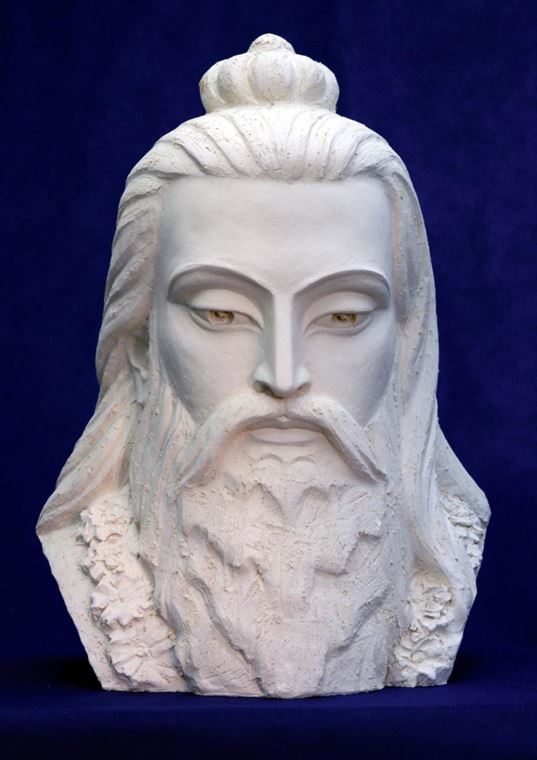Rishi Vyasa. 2010
Author: Alexey Leonov
Material: Shamotte
Location: ETNOMIR Cultural Education Center
“Unity means not the absence of individuality, but the absence of disconnection”.
RISHI VYASA – legendary ancient Indian sage, editor and compiler of ancient monuments of Indian culture – the Vedas and Puranas, the Mahabharata epic.
One of the great religion founders Rishi Vyasa gathered the most ancient hymns and teachings into a single system, explained their meaning, gave them a symbolically allegorical form and thus made them accessible to people. He cast pure and noble ideas into numerous myths. Images of myths directed people and allowed “those whose minds and hearts were in the childhood stage, to touch the true Beauty and Truth.” The Vedas served as a model for all later religious teachings.
According to the Bhagavata Purana, Vyasa is the seventeenth incarnation of God. The name Vyasa means: “he who spreads or develops.” At the beginning of our era, Kali Yuga, it became necessary to transfer knowledge in writing, as people, as a result of moral decline, began to lose the ability to memorize everything they had once heard. Vyasa systematized and recorded Vedic knowledge, dividing it into four Vedas. The Vedas have become a source of eternal knowledge, the realization that Somebody has already done this difficult earthly path and is waiting at the end, where the road merges with the starry sky.




